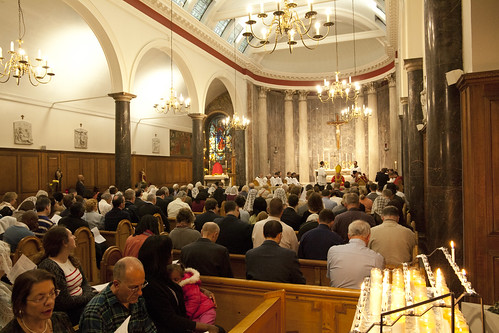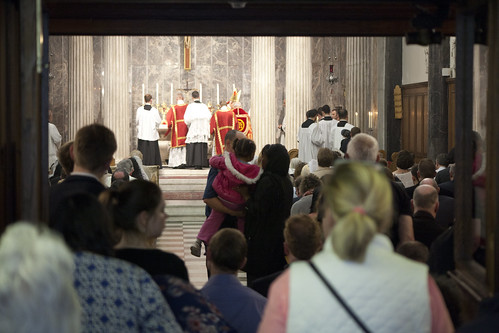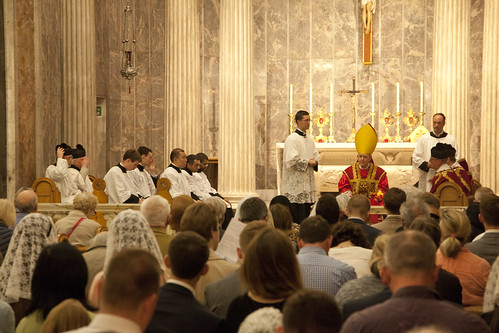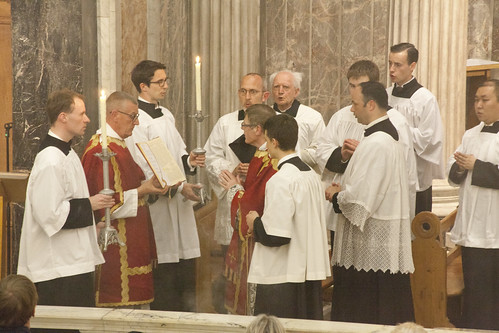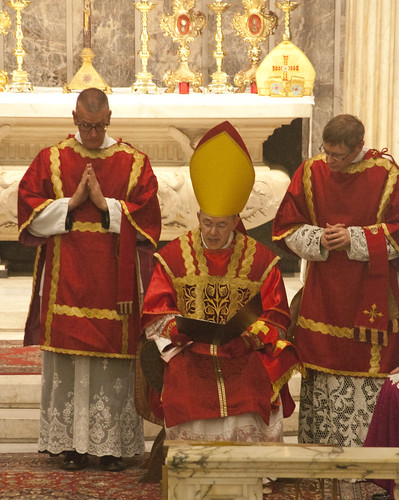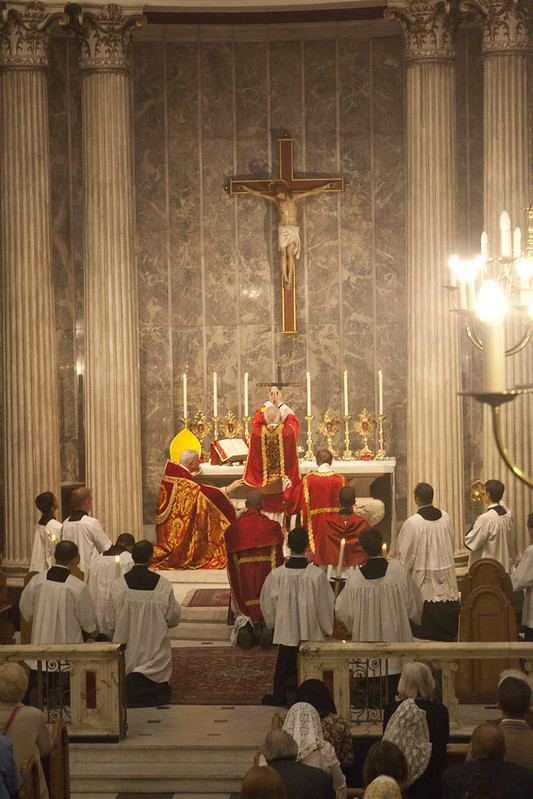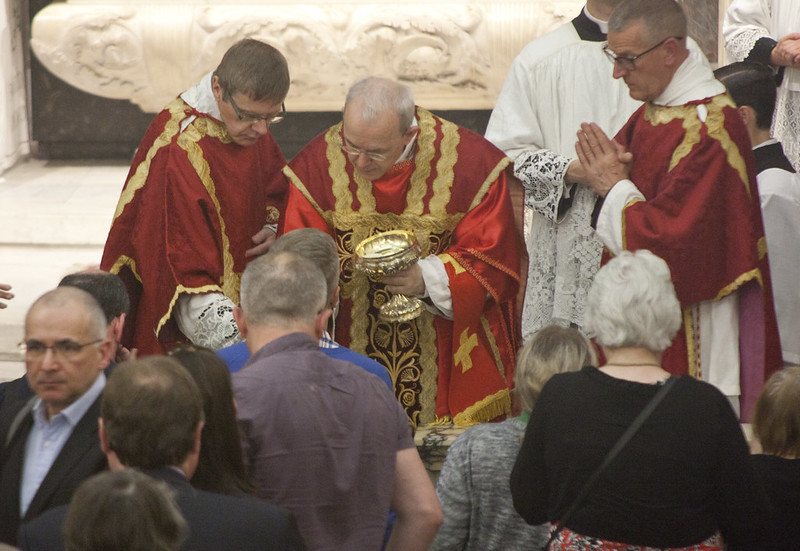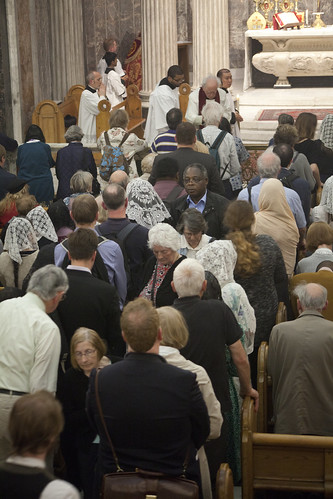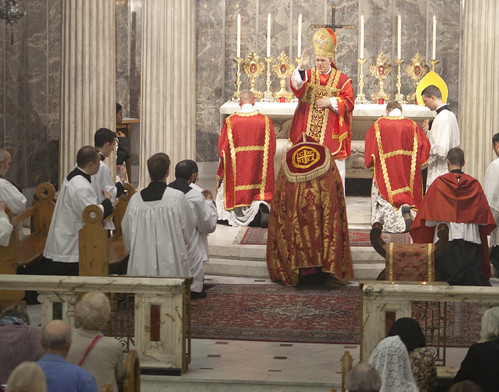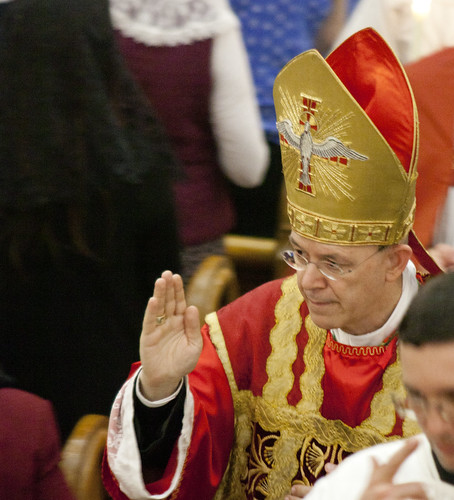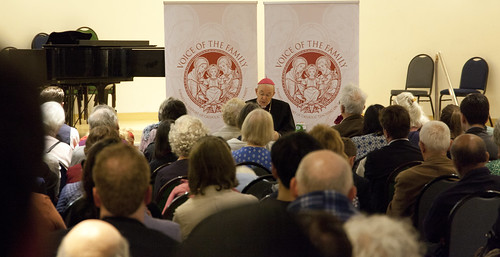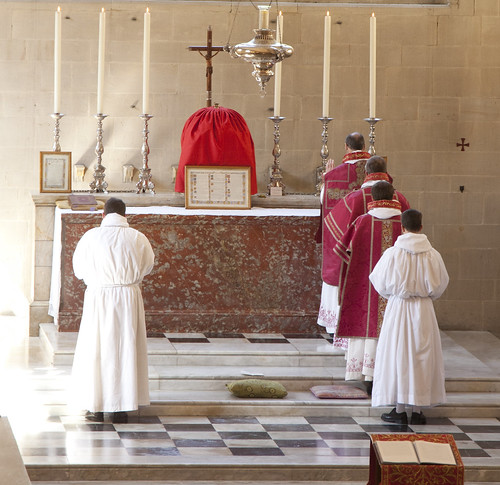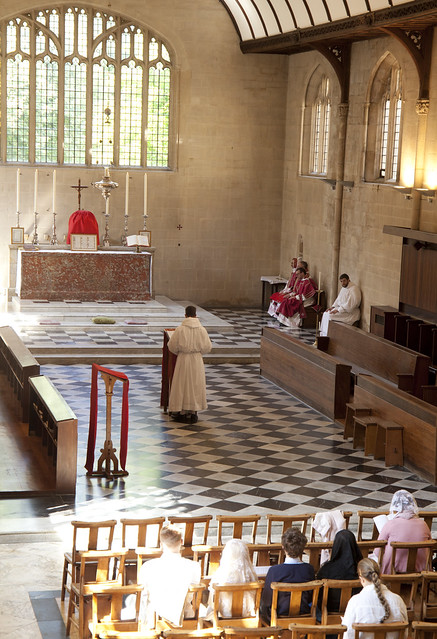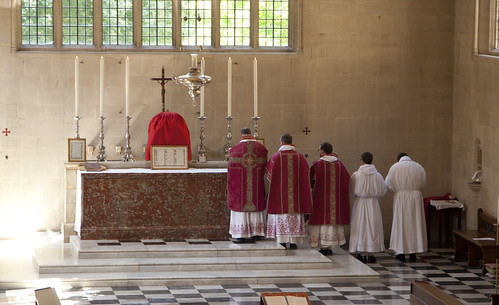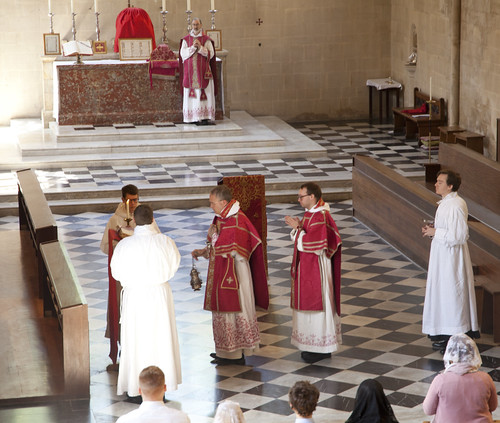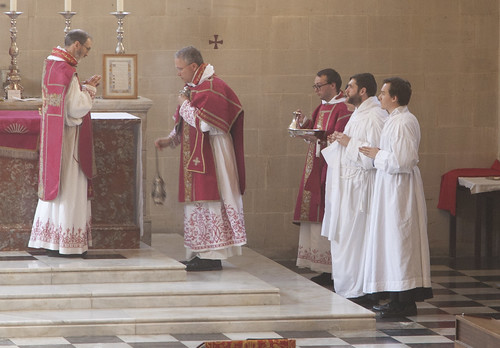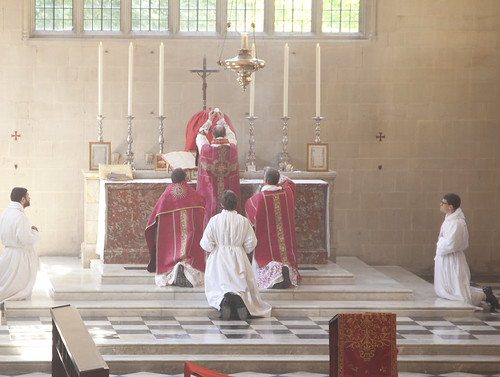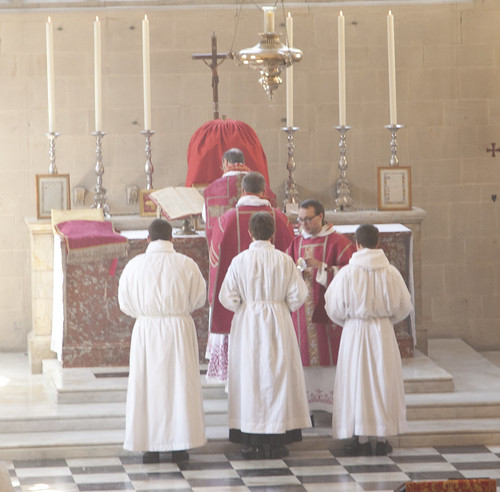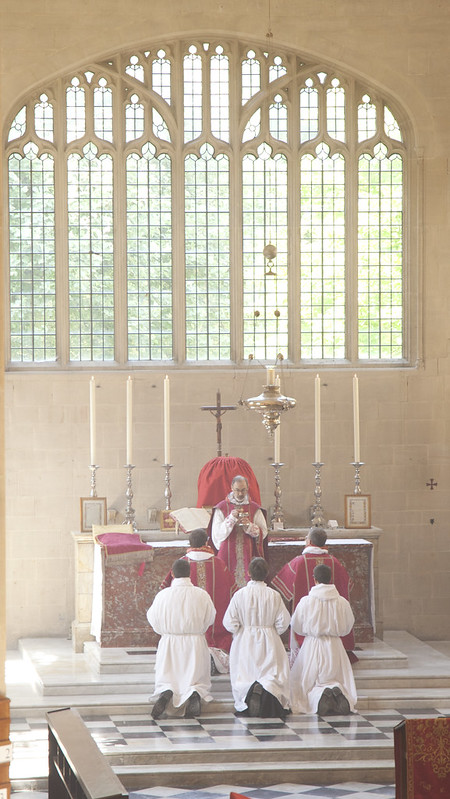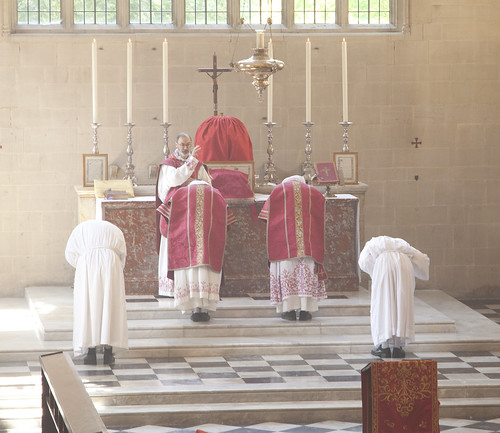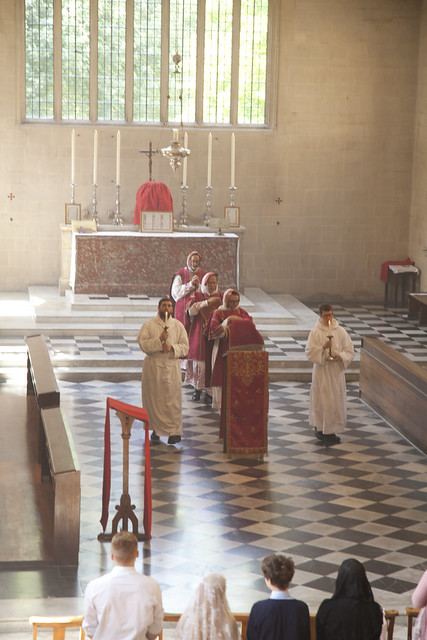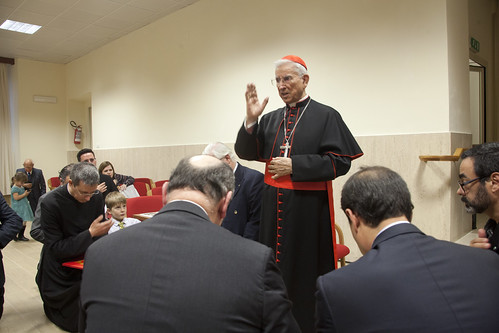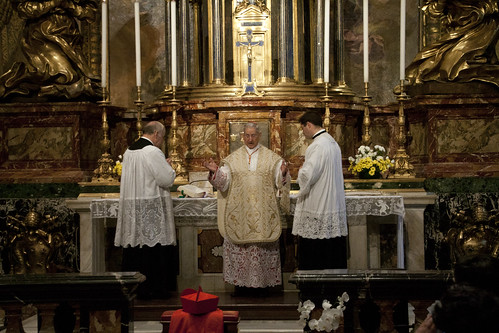Chairman's Blog
Ireland turns to Moloch
John Stuart Mill wrote that the freedom of a liberal state should be considered as the freedom to do anything which does not harm others. The doctrine sounds reasonable until you realise that the people who profess to live by it manipulate the term 'harm' in such a way that whatever they don't like counts as harmful, and whatever they do like does not count as harmful. The doctrine of the modern world, which Mill was attempting to put into respectable dress, is that in order to be free, in order to enjoy life properly, one must be able to inflict indescribable suffering and even death on others. To be free one must be able to abandon one's spouse and walk out on one's children; one does not need the right to quote the Bible in a street conversation, or wear a religious habit on the beach. Calling a person by a grammatically correct pronoun is a harm; killing an unborn baby is not a harm.
This may seem confusing but it makes sense really: there is a pattern. The things you are able to do, and indeed must be able to do, are the things necessary for a group of highly specific lifestyles. The things you are not allowed to do are the things which impede or complicate those same lifestyles. It is not that the favoured lifestyles are happy ones: studies of objective life-outcomes like mental health and suicide rates may even rate them poorly compared with alternatives not so beloved of our political elite. This does not prevent this conception of freedom from condemning actions which might facilitate a person's move from the former to the latter. For what is true at the individual level, that freedom consists in being able to harm others, is true at the social leval as well. A free society, on this view, is a society which harms whole groups of people: a society which insists that they remain in a state of misery. The worst thing anyone can do is to help those in a homosexual lifestyle, women in crisis pregnancies, or children who are being abused by rape gangs: any of these who actually want to be helped. No: society has decreed that they are free, that freedom demands that they follow a narrowly defined path which predictably leads to objectively catastrophic outcomes, and that they must continue to suffer until they die.
It amuses me, in a meloncholy way, to read criticisms of 'integralism', a term which is used to describe what in Political Theory is called a 'perfectionist' theory: a theory that the state should act on a view of what leads to happiness and what does not. The alternative is supposed to be a 'neutralist' theory. We are living in an integralist society, my friends; just not a Catholic one. The ways of life which are given special status in our society, which are encouraged and protected, have not been chosen on the basis of Catholic principles. They appear to have been chosen on demonic principles. They have nothing to do with what any sociological researcher would class as 'good outcomes'. They are our society's offering to Moloch of the lives of our children and young people. It is considered virtuous to make this offering; it is impiety to refuse it.
First Moloch, horrid king, besmeared with blood
Of human sacrifice and parents' tears,
Though, for the noise of drums and timbrels loud,
Their children's cries unheard, that passed through fire
To his grim idol. (link)
I have few words of comfort for the defeated pro-life campaigners in Ireland. I write before the official results have been announced, but by all accounts the margin is not such as could have been overcome by a slightly cleverer campaign strategy. I don't think they need blame themselves. They were battling something bigger than the usual political movement. Their position was an impossible one, with the self-destruction of the Catholic Church's moral authority in Ireland coupled with an international movement in favour of death.
We aren't now faced with a referendum campaign, but a lifetime to live with the consequences of the series of Molochian triumphs in Ireland, Britain, and beyond. What are we to do? We are called on to oppose injustice as best we may; to help our neighbour as best we may; to worship God as best we may. I will make only two observations about the form this must take.
One is that the big issues will not come right without a conversion of heart on the part of a large number of our fellow-citizens. Personally, I love clever arguments, but while we have to have them the heavy lifting is going to be about making an integral Catholic life seem both attractive and possible to people. Only the fullness of truth, liturgy, culture, and God's grace, is going to work here.
The other is that the work we can do for the forseeable future is going to be only preparatory and experimental. This will have its value of course, but we aren't going to make substantial progress until another condition is met: the restoration of the credibility and evangelising effectiveness of the hierarchical Church. There is very little, if anything, we can do about that as lay Catholics, or even as priests, but no Catholic movement to infuse the temporal sphere with the values of the Gospel (as Vatican II expressed it) is going to make headway without the support of the Pope and a good number of bishops. A certain proportion of ineffective or even corrupt bishops would not necessarily stop it, but a good Pope won't be effective if a vast body of bishops is against him, and good bishops can do little if the Pope is against them.
Right now it doesn't seem very likely that this condition will be met in my lifetime, but you never know.
Support the work of the LMS by becoming an 'Anniversary Supporter'.
Bishop Schneider's Mass in London: photos
St Mary Moorfields was packed to the doors last evening for Bishop Schneider's Mass. There was hardly room to stand at the back and the coridoor leading to the church from the street was occupied as well.
The sanctuary was also full to capacity. The Assistant Priest was the LMS' National Chaplain, Mgr Gordon Read, assisted by Fr Mark Elliot-Smith as Deacon, Fr David Evans as Subdeacon, and Canon Vianney Poucin de Wouilt ICKSP as Clerical MC.
Beautiful music by a number of English Catholic composers - Taverner, Tallis, and others - was sung by Cantus Magnus, directed by Matthew Schellhorn.
Bishop Schneider preached about the coming of the Holy Ghost at Pentecost at Mass, and after Mass gave a talk about the Church Militant, and the idea of Christians as soldiers of Christ. The basement of the church, where the talk took place, was similarly packed to the doors, and beyond.
Mass was offered for the Irish Referendum.
Support the work of the LMS by becoming an 'Anniversary Supporter'.
Ember Saturday Mass in Oxford
Support the work of the LMS by becoming an 'Anniversary Supporter'.
Dominican Vigil of Pentecost: photos
Last Saturday the Dominicans of Oxford celebrated the Vigil of Pentecost according to their ancient books, which means that the Mass proper is preceeded by four Old Testament readings. It was accompanied by the Schola Abelis of Oxford. The celebrant was Fr Richard Conrad.
Pentecost is one of the great festivals of the Church's year. Perhaps because it falls on a Sunday, I think we tend to take it for granted. But it's ancient Vigil, which reprises the Vigil of Easter, and Whit Week which follows it, once made it stand out. As well as the subsequent sequence of Sundays being called the 'Season after Pentecost'.
An unexpected feature of the Mass on Saturday was the presence, in the congregation, of a number of members of the Council of the Association for Latin Liturgy, who happened to be having a Council meeting in Oxford later in the day. The ALL broke away from the Latin Mass Society in 1969 when some members wanted to promote the Novus Ordo in Latin, but we enjoy friendly relations with them today.
Liturgy has to be experienced, not read about; photographs and recordings can give only the vaguest sense of what it is like.
I feel there is something especially serene about the Dominican Rite, and the chants have a distinctiveness which gives them (to those used to Roman chants) a slightly unexpected, even weird, quality which makes them fresh. I noticed this particularly with the Litany of the Saints which, though very simple, required constant effort on the singers part if it were not to turn into the Roman version. It was a privilege to assist at this Mass.
Support the work of the LMS by becoming an 'Anniversary Supporter'.
Cardinal Castrillon Hoyos: RIP
Cardinal Castrillon Hoyos died yesterday. He deserves our prayers.
He was President of the Pontifical Commission Ecclesia Dei over the period of the promulgation of Summorum Pontificum, obviously a very important time for those attached to the Traditional Mass.
In the photograph below, he is blessing delegates at the Foederatio Universalis Una Voce during the General Assembly of 2013; below that he is celebrating Mass for them in the Blessed Sacrament Chapel of St Peter's in Rome in 2011. That was the first time a Cardinal has celebrated the ancient Mass in St Peters since the liturgical reform.
There is an obituary of him on Rorate Caeli.
Support the work of the LMS by becoming an 'Anniversary Supporter'.
This Saturday, pray to save the 8th and avoid the Royal Wedding media build-up
Support the work of the LMS by becoming an 'Anniversary Supporter'.
Summer 2018 Mass of Ages available
 In this issue: • Paul Waddington reports from a very successful Priest, Deacon and Server Training Conference • Cardiff University Chaplain, Fr Sebastian Jones, writes about the pre-Reformation chapel of St Teilo in Fagan’s National Museum of History • Lucy Shaw reports on the second Guild of St Clare Sewing Retreat • Tyburn Convent Relic Chapel – Joseph Shaw writes about the Sung Mass celebrated there as part of the CMA’s recent conference • Looking ahead to the LMS Latin Course in Boars Hill, Oxford
In this issue: • Paul Waddington reports from a very successful Priest, Deacon and Server Training Conference • Cardiff University Chaplain, Fr Sebastian Jones, writes about the pre-Reformation chapel of St Teilo in Fagan’s National Museum of History • Lucy Shaw reports on the second Guild of St Clare Sewing Retreat • Tyburn Convent Relic Chapel – Joseph Shaw writes about the Sung Mass celebrated there as part of the CMA’s recent conference • Looking ahead to the LMS Latin Course in Boars Hill, Oxford
See more.
Read it online.
Order a copy direct from the LMS.
Support the work of the LMS by becoming an 'Anniversary Supporter'.
Celebrating the coming of the Holy Spirit in Oxford
 A series of four High and Sung Masses in Oxford will celebrate the coming of the Holy Spirit on the Apostoles at Pentecost.
A series of four High and Sung Masses in Oxford will celebrate the coming of the Holy Spirit on the Apostoles at Pentecost.
Saturday 19th May: Vigil of Pentecost: 10:30am High Mass in Blackfriars
This was formerly regarded as such an important occasion the liturgy reprised the Vigil of Easter. The Dominican Rite High Mass will do exactly that, with four 'prophecies' (readi
ngs from the Old Testament) before the Epistle and Gospel of Mass. Accompanied by the Schola Abelis.
Blackfriars, St Giles, Oxford OX1 3LY
Sunday 20th May: Whitsun (Pentecost Sunday): 12 noon Sung Mass, SS Gregory & Augustine's.
Also: 8am Low Mass, Oxford Oratory
SS Gregory & Augustine's, 322 Woodstock Road, Oxford, OX2 7NS
The week after Whitsun is 'Whit Week', like the week after Easter each day has a high rank and ordinary saints' days cannot be celebrated. It is also an 'Ember' Week, with an extra reading on Wedneday and a set of prophecies on the Saturday.
Low Masses are celebrated:
Wedneday 6pm, SS Gregory & Augustine
Friday 12:15pm, Holy Rood, Abingdon Road
Friday 6pm, SS Gregory & Augustine
Saturday 26th May: Whit Saturday, the Ember Saturday of Pentecost: 11:30am, High Mass in Holy Rood, Abingdon Road. Accompanied by the Schola Abelis.
Holy Rood, 38 Abingdon Road, Oxford OX1 4PD Sunday 27th May: Trinity Sunday: High Mass in Holy Trinity, Hethe, for the Patronal feast of this historic church north east of Oxford. With polyphony from Cantus Magnus under Matthew Schellhorn.
Sunday 27th May: Trinity Sunday: High Mass in Holy Trinity, Hethe, for the Patronal feast of this historic church north east of Oxford. With polyphony from Cantus Magnus under Matthew Schellhorn.
Hardwick Road, Hethe, OX27 8AW Click here for a map
Support the work of the LMS by becoming an 'Anniversary Supporter'.
Pearls, swine, and the Via Pulchritudinis at the Met Gala
 |
| Belshazzar punished for his profane use of the Temple's sacred vessels. |
Reflecting on the business of the A-lister fund-raising banquet at the Metropolitan Museum of Art in New York, a number of apparently contradictory thoughts spring to mind. In no special order, here are some quotations which may, to a greater or lesser extent, be relevant.
Pope John Paul II Ecclesia in Europa (2003) 60. ‘Nor should we overlook the positive contribution made by the wise use of the cultural treasures of the Church. These can be a special element in the rekindling of a humanism of Christian inspiration. When properly preserved and intelligently used, these living testimonies of the faith as professed down the ages can prove a useful resource for the new evangelization and for catechesis, and lead to a rediscovery of the sense of mystery. … artistic beauty, as a sort of echo of the Spirit of God, is a symbol pointing to the mystery, an invitation to seek out the face of God made visible in Jesus of Nazareth.’ (link to where I quoted this before)
The Congregation for Divine Worship: 'Any performance of sacred music which takes place during a celebration, should be fully in harmony with that celebration. This often means that musical compositions which date from a period when the active participation of the faithful was not emphasized as the source of the authentic Christian spirit are no longer to be considered suitable for inclusion within liturgical celebrations.' (Concerts in Churches, 1987).
Matthew 7:6: 'Give not that which is holy to dogs; neither cast ye your pearls before swine, lest perhaps they trample them under their feet, and turning upon you, they tear you.'
It is no surprise, in this context, that it was the two biggest liturgical conservatives of the Papal household, Archbishop Ganswein and Mgr Marini the Papal MC, who were key to the organisation of the Met's special exhibition of Vatican vestments. Did they have misgivings, in advance, about these items becoming the backdrop for a get-together of the American cultural elite and the inspiration of costumes which included some in poor taste, and others which were downright scandalous? I do not know, but I am sure they were thinking, like Cardinal Mayer, that if these items were not going to see much, if any, liturgical use, they might as well be allowed to exercise their considerable evangelising power as museum pieces on a fresh audience. This was not a project of liturgical progressives, for all the involvement, at a later stage, of Fr James Martin SJ and Cardinal Dolan.
That is not to say that we are obliged to agree with Ganswein and Marini. The Gala dinner aspect of the event puts it into a somewhat different context from the usual lending of items by one museum to another for a special exhibition. The consternation of Catholic conservatives at seeing Rihanna and others desporting themselves in what could be described as mocking mimicries of liturgical vestments has been huge. It is little comfort to remind ourselves that it could have been much worse, and that the celebrities, with a very few exceptions, did not take the opportunity to engage in calculated defilement of the sacred. The general tone of the event, and the presence of Cardinal Dolan as a guest of honour, was no doubt helpful. But the question remains whether allowing this use of these vestments was an instance of casting pearls before swine.
What does this idea mean? What Christ is talking about is the separation of the sacred and the profane which is intrinsic to the very idea of the sacred. The sacred is what is set apart: God is sacred because he is set apart from us, and items used in His worship are set apart from profane use. Catholics at the coal-face of the kind of liturgical restoration of which Ganswein and Marini approve become uncomfortable about the idea of trade in sacred things, which indeed is in some cases ruled out by Canon Law, even if in other cases it is a necessary fact of life. It's not that they wouldn't want people to see them; it is rather that they are set apart for a sacred purpose, and should be used for that purpose and not for profane purposes. It is necessary for us to recover this instinctive discomfort about seeing, say, real vestments being used in a theatrical performance, or even in a museum, if we are to recover the sense of the sacred as a whole. You can't nurture the sense of the sacred without doing the spadework of the conceptual and practical separation of the putatively sacred from the profane.
Liturgical conservatives will naturally recognise the subtle evangelising power of the liturgical items displayed in the Met and the V&A, but wouldn't necessarily want these collections to exist at all, in an ideal world. It's not appropriate: this stuff should be in churches, and it should be being used, if it is in a condition to be used. Then we would see, what of course to some extent we do see, the far greater evangelising power it has when plugged into its proper liturgical context.
He loved to kneel down on the cold marble pavement, and watch the priest, in his stiff flowered vestment, slowly and with white hands moving aside the veil of the tabernacle, or raising aloft the jewelled lantern-shaped monstrance with that pallid wafer that at times, one would fain think, is indeed the "panem caelestis," the bread of angels, or, robed in the garments of the Passion of Christ, breaking the Host into the chalice, and smiting his breast for his sins. The fuming censers, that the grave boys, in their lace and scarlet, tossed into the air like great gilt flowers, had their subtle fascina- tion for him.
Oscar Wilde, The Picture of Dorian Grey.
Support the work of the LMS by becoming an 'Anniversary Supporter'.
Excommunication of SSPX faithful: LMS Press Release
In light of recent events in the Diocese of Buffalo, New York, I'm reposting this from November 2014
----------------------------------------
4 NOVEMBER 2014
PRESS RELEASE ON THE STATUS OF THE FAITHFUL WHO RECEIVE THE SACRAMENTS FROM PRIESTS AND BISHOPS OF THE SOCIETY OF ST PIUS X.
 |
| Bishop Semararo |
FROM THE LATIN MASS SOCIETY
 |
| Bishop Sarlinga |
1. Basing a canonical argument on the assumption that the Society of Pius X (SSPX) has no canonical status in the Church and that its priests are suspended following ordination without dimissorial letters, it does not follow that to seek the sacraments at their hands is an act of formal schism on the part of the lay faithful.
Support the work of the LMS by becoming an 'Anniversary Supporter'.

